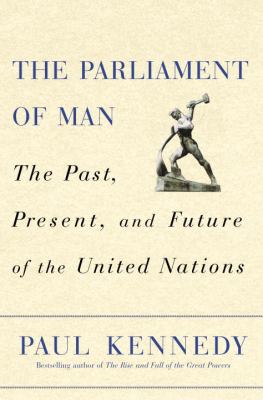 Title Details
Title Details
Title
The parliament of man : the past, present, and future of the United Nations
Call No
341.23 U58k
Edition
1st ed.
Digital Link
Authors
Subjects
Language
English
Published
New York : Random House, c2006.
Publication Desc
xvii, 361 p. : ill. ;
ISBN
0375501657
LCCN
2005044785
Dimensions
25 cm.

Book
|
The parliament of man : the past, present, and future of the United Nations
Copies
1 Total copies, 1 Copies are in,
0 Copies are out.









